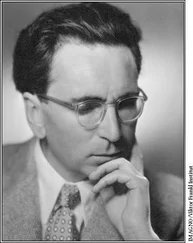IN SEARCH OF KLINGSOR
Jorge Volpi
Translated by Kristina Cordero
FOR ADRIAN, ELOY, GERARDO, NACHO, AND
PEDRO ANGEL, MY FELLOW CONSPIRATORS
Cover
Title Page
Dedication
Epigraph
Preface
BOOK ONE
Laws of Narrative Motion
LAW I: All narratives are written by a narrator
LAW II: All narrators offer one, singular truth
LAW III: All narrators possess a motive for narrating
Crimes of War
Hypotheses: From Quantum Physics to Espionage
HYPOTHESIS I: On Bacon’s Childhood and Early Years
HYPOTHESIS II: On Von Neumann and the War
HYPOTHESIS III: On Einstein and Love
HYPOTHESIS IV: On Gödel’s Theory and Marriage
HYPOTHESIS V: On Bacons Departure for Germany
Brief Autobiographical Disquisitions: From Set Theory to Totalitarianism
DISQUISITION I: Infancy and the End of an Era
DISQUISITION II: Youth and Irrationality
DISQUISITION III: The Arithmetics of Infinity
DISQUISITION IV: Liberty and Lust
DISQUISITION V: The Search for the Absolute
The Uranium Circle
Parallel Universes
The Quest for the Holy Grail
BOOK TWO
Laws of Criminal Motion
LAW I: All crimes are committed by a criminal
LAW II: Every crime is the portrait of a criminal
LAW III: Every criminal possesses a motive
Max Planck, or a Lesson in Faith
Reasons for Discouragement
Johannes Stark, or a Lesson in Infamy
The Game of War
Werner Heisenberg, or a Lesson in Sadness
The Dangers of Observation
Erwin Schrodinger, or a Lesson in Desire
The Laws of Attraction
The Liar’s Paradox
The Dimensions of Affection
Niels Bohr, or a Lesson in Will
Chain Reaction
The Uncertainty Principle
Hidden Variables
Kundry’s Curse
BOOK THREE
Laws of Traitorous Motion
LAW I: All men are weak
LAW II: All men are liars
LAW III: All men are traitors
Dialogue 1: On Those Forgotten by History
The Conspiracy
Dialogue II: On the Rules Governing Chance
The Bomb
Dialogue III: On the Secrets of Destiny
The Realm of the Occult
Dialogue IV: On the Death of Truth
The Betrayal
Dialogue V: On the Privileges of Insanity
Klingsor’s Revenge
End Note
About the Author
Copyright
About the Publisher
Science is a game—but a game with reality, a game with sharpened knives … if a man cuts a picture carefully into 1,000 pieces, you solve the puzzle when you reassemble the pieces into a picture; in the success or failure, both your intelligences compete. In the presentation of a scientific problem, the other player is the good Lord. He has not only set the problem but also devised the rules of the game—but they are not completely known, half of them are left for you to discover or to determine. The experiment is the tempered blade which you wield with success against the spirits of darkness—or which defeats you shamefully. The uncertainty is how much of the rules God himself has permanently ordained, and how much appears to be caused by your mental inertia, while the solution generally becomes possible only through freedom from this limitation. This is perhaps the most exciting thing in the game. For here you strive against the imaginary boundary between yourself and the Godhead—a boundary that perhaps does not exist.
—ERWIN SCHRÖDINGER
On September 5, the day they came for me, I was in my house on Ludwigstraße preparing some equations that Heisenberg had sent to me a few weeks earlier. Ever since July 20, when Hitler announced over the radio that the coup attempt had failed and that his life had been providentially spared, I knew that I didn’t have much time. My anguish grew as I listened to the subsequent news reports: the execution of Stauffenberg and of his close friends, the preparations for the trials in the People’s Court, and the massive wave of arrests that were made in the coup’s aftermath.
Well aware that I could easily be the next in line, I tried to remain calm. But when I learned that Heini—Heinrich von Lutz, my childhood friend—had been arrested, I knew for sure that my days were numbered. But what could I do? Flee Germany? Hide? Escape? We were right in the middle of the very worst months of the war. It would have been impossible. All I could do was wait, quietly, for the SS or the Gestapo to break into my house. If I was lucky.
Just as I had imagined, the thugs wasted little time. A few days later, the Gestapo arrived at my house, handcuffed me, and I was taken straight to Plötzensee.
On July 20, 1944, a select group of officials of the Wehrmacht, the Armed Forces of the Third Reich, aided by dozens of civilians, had made an attempt on Hitler’s life while the Führer was presiding over a meeting at his headquarters at Rastenburg, about six hundred kilometers east of Berlin. The leader of this group was Count Claus Schenk von Stauffenberg, a young colonel who had been wounded in the line of duty in North Africa. That day, Stauffenberg placed a pair of bombs in a briefcase, which was then deposited underneath the Führer’s desk. Stauffenberg waited for the bombs to go off, the signal for the coup to begin, the coup that would put an end to the Nazi regime and, possibly, the entire Second World War.
The tiniest, most infuriating logistical error foiled Stauffenberg’s plan. Either one of the bombs hadn’t been activated or the suitcase had simply been placed too far from where Hitler had been sitting. The Führer escaped with a few scrapes and not a single one of the high commands of the party or the army was seriously wounded. Despite the failure of their first operative, the conspirators fully intended to move ahead with their plan, but by the early hours of the next day the Nazis had regained control of the situation. The main orchestrators of the coup—Ludwig Beck, Friedrich Olbricht, Werner von Haeften, Albrecht Ritter Mertz von Quirnheim, and of course, Stauffenberg—were detained and killed that night in the general headquarters of the army, on the Bendlerstraße in Berlin. Hundreds of others were quickly arrested following the strict orders of the Reichsführer-SS and the new minister of the interior, Heinrich Himmler.
The news of the plot came as a shock to military insiders and civilians alike, thanks to the startling scope of people implicated: military officers, businessmen, diplomats, members of the army and the naval intelligence forces, professionals and merchants. In the aftermath, Himmler had all the conspirators and their relatives arrested, on the theory that the source of evil travels through bloodlines. By the end of August of 1944, some six hundred people had been arrested—some for aiding and abetting the conspirators, others simply for being related to them.
Hitler was livid about the coup, and unleashed his vengeance upon all the people who had turned against him during the very worst moments of the war. Scarcely a few weeks had passed since the Allied invasion of Normandy, and already there were people ready and willing to do away with him and place the entire Third Reich in jeopardy. So, just as Stalin—his enemy—had done in Moscow in 1937, Hitler decided to stage a great trial so that all the world could see just how vicious his enemies really were. Before it began, Roland Freisler, the chief justice of the People’s Court of the Greater German Reich, and the executioner who would carry out the punishments were summoned to his headquarters, the “Wolf’s Lair.” There, Hitler advised them of the following: “I want them hanged, strung up like butchered cattle!”
Читать дальше












